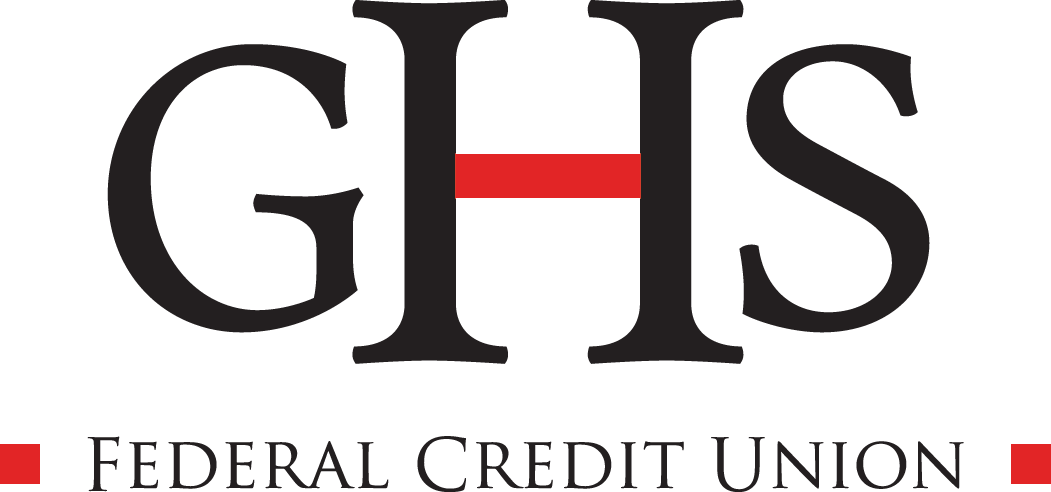Student Loans With GHS Federal Credit Union

Let GHS Help Make Your College Dreams Come True
We want to help make financing your education easier and repaying your student loans better! Through our partnership with LendKey, we are proud to offer financing options for both current students and those who have graduated.
Click below for the GHS Federal Credit Union Student Loan that fits your needs.
NEW PRIVATE STUDENT LOAN REFINANCING STUDENT LOANPrivate Student Loans
A low-rate student loan offers a range of benefits to students looking for help with the cost of attendance.
Application Requirements
Be enrolled half-time (at a minimum) at an approved school
Must be enrolled in a degree-granting program
Steady source of income
Established credit history
Must be a US citizen or permanent resident
Be the age of majority in your state of residence
Loan Features
Ability to secure better loan terms with a cosigner if your credit is poor or hasn’t been established (learn more about cosigning a loan)
Potential to borrow up to 100% of school-certified expenses, including tuition, room and board, and books
Conditional approval may be available soon after applying
Competitive interest rates
Smooth, user-friendly application process
NEW PRIVATE STUDENT LOAN
STUDENT LOAN REFINANCING
Refinancing your student loans for a lower interest rate can save you thousands. Multiple repayment options mean you can find something that fits your situation.
Features
Ability to release any cosigners, eliminating their liability
Enables you to combine multiple loans into one
Refinance federal and private student loans together
Option to refinance only those loans with high interest rates
A new loan means you have a chance to save money with new terms–if you qualify for a lower interest rate or reduce the repayment term, it can save you thousands
Choose a variable or fixed interest rate
Minimum loan amount of $5,000.00 (or more in Arizona, Connecticut, and Massachusetts)
Maximum loan amount of $125,000.00 for undergraduate degrees; graduate students can borrow up to $175,000.00, and select medical degrees eligible to borrow up to $300,000.00
Refinancing Student LoansCollege Scholarship Opportunities
Helping young adults to avoid debt and build a strong financial foundation is part of our mission to serve our members. GHS has teamed up with the NYCUA to provide two scholarship opportunities to our membership. Applications are accepted in the fall of each year and are selected in the early months of the following year to students attending a 2- or 4-year college. Follow us on social media or sign up for our emails to be notified of our upcoming opportunities.
FAQ
What is the difference between a federal student loan and a private one?
As the name suggests, the federal government provides federal student loans. Private student loans come from private lenders, such as banks and credit unions, which provide private loans.
One main difference between the two types of loans is the accessibility of federal loans. Government loans are available to students regardless of whether they have a cosigner or a good credit history. Federal loans’ repayment plans can differ from private student loan options. However, due to borrowing limits on federal student loan amounts, student borrowers can have to seek out supplemental financial aid.
Private student loans can fill the gap between tuition costs and the amount of government aid in the form of grants, loans, and scholarships a student has. Applicants often need to have a desirable credit score or a cosigner who does.
Do I still need to complete a Free Application for Federal Student Aid (FAFSA) if I’m applying for a private student loan?
A FAFSA application determines your eligibility for financial aid at the federal and state levels, as well as for any university-funded financial aid. Completing the FAFSA is strongly recommended. Apply at www.studentaid.gov/h/apply-for-aid/fafsa.
By starting a student loan application, you can check your eligibility for a LendKey private student loan through its network of private lenders.
Do private student loans have an application deadline?
While there is no set deadline, LendKey tends to recommend applying at least one month before the due date for the funds. An initial review of your credit report and your application may mean conditional approval occurs soon after. However, final approval can depend on any supporting documentation that may be required, such as ID or proof of income.
Additionally, more time may be added to the application process as your school certifies your loan. Institutions can typically process and certify loans in under thirty days; you may need to allow several weeks for everything.
Should I have a cosigner for my private student loan?
While not required, a cosigner can improve your chances of approval. Because LendKey private student loans are credit-based, they require a review of credit and income. Students often lack steady income sources and an established credit history, making it difficult to procure a loan with good rates.
In most cases, a cosigner with an established credit history can help you. If your cosigner has an established credit history, you can usually qualify for better terms, which means long-term savings when it comes to your loan repayments.
Can I repay my private loans while still in school?
Student loan debt is a national problem. You can make monthly minimum payments on your loan while you are still in school. Doing so offers the following benefits:
- Reduce post-graduation debt load
- Develop good financial habits
- Build a credit history that will help you after graduation as you apply for jobs and places to live
Why should I consider refinancing my student loans?
If you’re a few years out of college or graduate school, you might be enjoying an improved financial situation and credit history. That means the terms of the loans you took out as a student may not reflect your current finances, and by refinancing, you could potentially save money and reduce your interest rates.
How do I get started refinancing my student loans?
There are a few different approaches, depending on whether you’re refinancing federal loans, private ones, or both together.
Federal Loans
Typically, borrowers refinance student loans through the government’s Federal Direct Consolidation Loan Program. Be aware that privately refinancing a federal loan takes away its benefits.Private Student Loans
To refinance your private loan, borrowers go through their lending institution, such as a bank or credit union. Private lenders can also combine federal and private loans into one easy-to-manage loan with better rates.Refinancing Calculator
LendKey offers a user-friendly student loan calculator. Simply fill in your remaining balance monthly payment amount to see if refinancing is right for you.Try the Refinancing Calculator
Variable vs. Fixed Rate: What’s the Difference?
If you’re refinancing your student loans, you know there are two main options: fixed and variable-rate student loans. While variable-rate loans are the most common for those consolidating or refinancing loans, fixed-rate loans are also a possibility.
Here’s a quick explanation of the difference between the two rates.
Fixed Rate
The interest rate on the loan stays the same throughout the life of the loan. While rates vary, the typical fixed rate for a borrower with excellent credit without a cosigner is around 7.00%.Variable Rate
Variable rates mean your student loan’s interest rate can adjust each month depending on changes in interest rates. When interest rates are extremely low, variable rates are good for borrowers.However, interest rates change. That means variable-rate student loans carry some risk – your payments can go up if interest rates do.
Will Loan Refinancing Affect My Credit?
In order to qualify for refinancing, lenders have to perform a credit inquiry. These inquiries can have an impact on your credit score.
However, you can check your rate in advance with LendKey’s Refinancing Calculator to see if refinancing is worthwhile before you begin.
Can I Refinance While I’m Still in School?
Students currently in school can refinance as long as they have graduated with at least an associate degree from a Title-IV participating school. However, once you do this, your loans go into repayment, and you might lose any of the in-school repayment options that came with the previous loans.
Does LendKey Refinance Parent Loans?
Parents who took out loans as the primary borrower to pay for their child’s education cannot refinance through LendKey partners.


